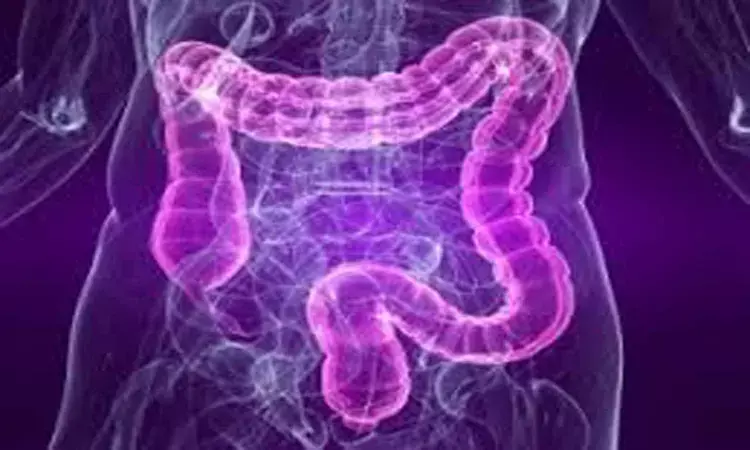- Home
- Medical news & Guidelines
- Anesthesiology
- Cardiology and CTVS
- Critical Care
- Dentistry
- Dermatology
- Diabetes and Endocrinology
- ENT
- Gastroenterology
- Medicine
- Nephrology
- Neurology
- Obstretics-Gynaecology
- Oncology
- Ophthalmology
- Orthopaedics
- Pediatrics-Neonatology
- Psychiatry
- Pulmonology
- Radiology
- Surgery
- Urology
- Laboratory Medicine
- Diet
- Nursing
- Paramedical
- Physiotherapy
- Health news
- Fact Check
- Bone Health Fact Check
- Brain Health Fact Check
- Cancer Related Fact Check
- Child Care Fact Check
- Dental and oral health fact check
- Diabetes and metabolic health fact check
- Diet and Nutrition Fact Check
- Eye and ENT Care Fact Check
- Fitness fact check
- Gut health fact check
- Heart health fact check
- Kidney health fact check
- Medical education fact check
- Men's health fact check
- Respiratory fact check
- Skin and hair care fact check
- Vaccine and Immunization fact check
- Women's health fact check
- AYUSH
- State News
- Andaman and Nicobar Islands
- Andhra Pradesh
- Arunachal Pradesh
- Assam
- Bihar
- Chandigarh
- Chattisgarh
- Dadra and Nagar Haveli
- Daman and Diu
- Delhi
- Goa
- Gujarat
- Haryana
- Himachal Pradesh
- Jammu & Kashmir
- Jharkhand
- Karnataka
- Kerala
- Ladakh
- Lakshadweep
- Madhya Pradesh
- Maharashtra
- Manipur
- Meghalaya
- Mizoram
- Nagaland
- Odisha
- Puducherry
- Punjab
- Rajasthan
- Sikkim
- Tamil Nadu
- Telangana
- Tripura
- Uttar Pradesh
- Uttrakhand
- West Bengal
- Medical Education
- Industry
Buprenorphine-naloxone combo effective treatment of narcotic bowel syndrome

The combination of buprenorphine and naloxone should be investigated as a potential treatment for narcotic bowel syndrome. The drugs seem to work together to address the underlying pathology of the syndrome. Findings from a brief research report are published in Annals of Internal Medicine.
Narcotic bowel syndrome (NBS) is a subset of opioid bowel dysfunction that is characterized by chronic or frequently recurring abdominal pain that worsens with continued or escalating dosages of narcotics. This syndrome is underrecognized and may be becoming more prevalent.
It is a chronic pain syndrome that occurs with opioid use and persists as opioid treatment is continued or escalated. More than half of patients with this syndrome who undergo opioid detoxification return to opioid use within a few months because of continued pain.
Opioid detoxification regimens vary between centres, but frequently include tapering or substitution of opioids and concomitant co-administration of antidepressants, anxiolytics, and psychological therapies.
Researchers from the University of Rochester reported the case of a 41-year old woman who had been taking fast-acting opioids for pain for 8 years, with continued episodes of abdominal pain, nausea, and vomiting, requiring hundreds of hospital visits. When other causes of pain had been ruled out and all other treatments failed, the clinicians treated her narcotic bowel syndrome with buprenorphine and naloxone. The patient reported greatly improved abdominal pain over the first few days, and her pain resolved entirely after 1 week. She had no further episodes of vomiting, and her nausea resolved almost entirely after 1 month.
According to the researchers, this approach may work because the combination of a narcotic partial agonist with a low-dose antagonist could result in improved pain control because the antagonist would block Gs pathways.
For further reference log on to:http://annals.org/aim/article/doi/10.7326/L19-0798
Hina Zahid Joined Medical Dialogue in 2017 with a passion to work as a Reporter. She coordinates with various national and international journals and association and covers all the stories related to Medical guidelines, Medical Journals, rare medical surgeries as well as all the updates in the medical field. Email: editorial@medicaldialogues.in. Contact no. 011-43720751
Dr Kamal Kant Kohli-MBBS, DTCD- a chest specialist with more than 30 years of practice and a flair for writing clinical articles, Dr Kamal Kant Kohli joined Medical Dialogues as a Chief Editor of Medical News. Besides writing articles, as an editor, he proofreads and verifies all the medical content published on Medical Dialogues including those coming from journals, studies,medical conferences,guidelines etc. Email: drkohli@medicaldialogues.in. Contact no. 011-43720751


